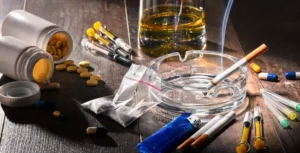
Given the data indicating decreased BDNF in alcoholism, there has been considerable interest in the possibility that chronic alcohol ingestion may impart its negative effects on T2DM, through its effects on BDNF. BDNF, a member of the neurotrophin family, mediated through a specific Trk family can diabetics get drunk receptor tyrosine kinase B (Trk A, Trk B, and Trk C), is abundantly expressed in central and peripheral nervous system [39]. BDNF have received attention, regarding a possible role in regulating neuronal survival, differentiation, synaptic plasticity, cognitive function and memory.
Is it ok for people with diabetes to drink alcohol?
These agents act to lower the patient’s blood sugar levels by decreasing insulin resistance rather than by increasing insulin secretion. Accordingly, these medications help control blood sugar levels without causing hypoglycemia. The two most common forms of diabetes are type 1 and type 2 diabetes, with type 2 diabetes accounting for at least 90 percent of all cases. Type 1 diabetes is an autoimmune disease—that is, a disease in which the body’s immune system attacks and destroys not only foreign molecules or organisms but also some of the body’s own cells. In most patients, the disease develops before age 40, primarily during childhood or adolescence. In those patients, the immune system attacks certain cells of the pancreas, called beta cells.
4. Basal Glucose Disposal by Muscle and Peripheral Tissues

The Diabetes Link, a nonprofit dedicated to helping teens and young adults with type 1 diabetes, maintains a resource page with advice on how to navigate drinking and diabetes. “You need to know if your medications or any diabetes-related conditions you have could be seriously affected by alcohol consumption,” emphasizes Harris. But if you have diabetes and want to enjoy happy hour, it’s best to take an approach that offers you some protection. Food slows down the rate at which alcohol is absorbed into the bloodstream. Be sure to eat a meal or snack containing carbohydrates if you are going to drink alcohol. Because many of the symptoms of hypoglycemia—such as slurred speech, drowsiness, confusion, or difficulty walking—are also symptoms of being drunk, it can be difficult to tell the two apart.
Are there benefits to drinking alcohol with diabetes?

To circumvent this concern, a variable infusion of glucose was administered, which effectively clamped the blood glucose at either fed or high physiological concentrations during the concomitant infusion of saline or alcohol. Under this well-controlled condition, individuals infused with alcohol showed potentiation of both the early- and late-phase release of insulin [86]. Alcohol-induced differences in plasma insulin appear independent of a change in hepatic insulin extraction [85]. Finally, the priming effect in humans appears specific to glucose as it does not impair glucagon-mediated insulin secretion [93]. This priming effect develops within several hours [108] and occurs at relatively low alcohol concentrations (10 mM) [85].
- This allows us to eliminate alcohol and other toxic substances from our body.
- Drinking water alongside alcohol, eating before you start drinking, and drinking water and solute, especially protein, after consuming alcohol can help lessen these effects, but it will not prevent them entirely.
- The authors have made all data underlying the findings in their manuscript fully available.
- In all five patients, the alcohol-induced hypoglycemia induced neurological changes, such as incontinence, inability to follow simple commands, perseveration,4 disorientation, and impairment of recent memory.
Test Your Blood Sugar
Retinopathy—retinopathy, which is caused by damage to the blood vessels that supply the retina, is the main cause of blindness in people with diabetes. Modifiable risk factors include your weight, your diet and the amount of exercise you do. The non-modifiables are things such as your age, ethnicity and your family medical history. When we consume alcohol, our body mostly breaks it down through the liver. This allows us to eliminate alcohol and other toxic substances from our body. Too much alcohol consumption can overwhelm our liver and lead to feeling intoxicated.


Thus, studies have also determined whether alcohol might alter glucose uptake in a tissue-specific manner. As a metabolically active tissue representing 40%–45% of total body weight, skeletal muscle has been the focus of many of these studies. For example, Molina et al. [51] used an in vivo injection of 14C-radiolabeled 2-deoxyglucose (2DG) to trace regional glucose uptake in rats during a 4 h continuous infusion of alcohol that did not alter basal glucose or insulin concentrations. In response to alcohol, glucose uptake in the gastrocnemius was reduced while no change was observed in the white or red quadriceps, abdominal muscle or diaphragm. Using a similar model of acute alcohol administration, Spolarics et al. [12] also reported reduced glucose uptake in some muscles (e.g., red quadriceps and soleus), but not others (e.g., gastrocnemius and white quadriceps). The reason for these discrepant findings in humans is not readily apparent as alcohol dose, methodology and subject demographics were comparable.
Moreover, a unique Japanese food culture has evolved, comprising Japanese cuisine and sake. In particular, ethyl-α-D-glucoside, which is present in sake, has been found to prevent product of interleukin 6 and liver injury49. A previous study showed that the intake of sake lees extract improved insulin resistance via the improvement of hepatic inflammation in an animal model50. Therefore, alcohol consumption, including sake, might have negative association with the development of type 2 diabetes in the Japanese participants with BMI ≥ 25 kg/m2. In recent years, the relationship between alcohol consumption and the risk of developing DM has garnered significant interest.
- Using the isolated perfused pancreas, alcohol did not alter basal insulin secretion but did impair glucose-stimulated insulin secretion (GSIS) in a dose-dependent manner [101].
- Abnormalities in the levels and metabolism of lipids are extremely common in people with either type 1 or type 2 diabetes and may contribute to those patients’ risk of developing cardiovascular disease (Durrington 1995).
- If you never or rarely drink alcohol, you’re not alone—in fact, people with diabetes drink about half as much as other adults.
- Thus, hyperinsulinemia refers to higher than normal insulin levels in the blood, whereas hypoglycemia refers to lower than normal glucose levels in the blood.
